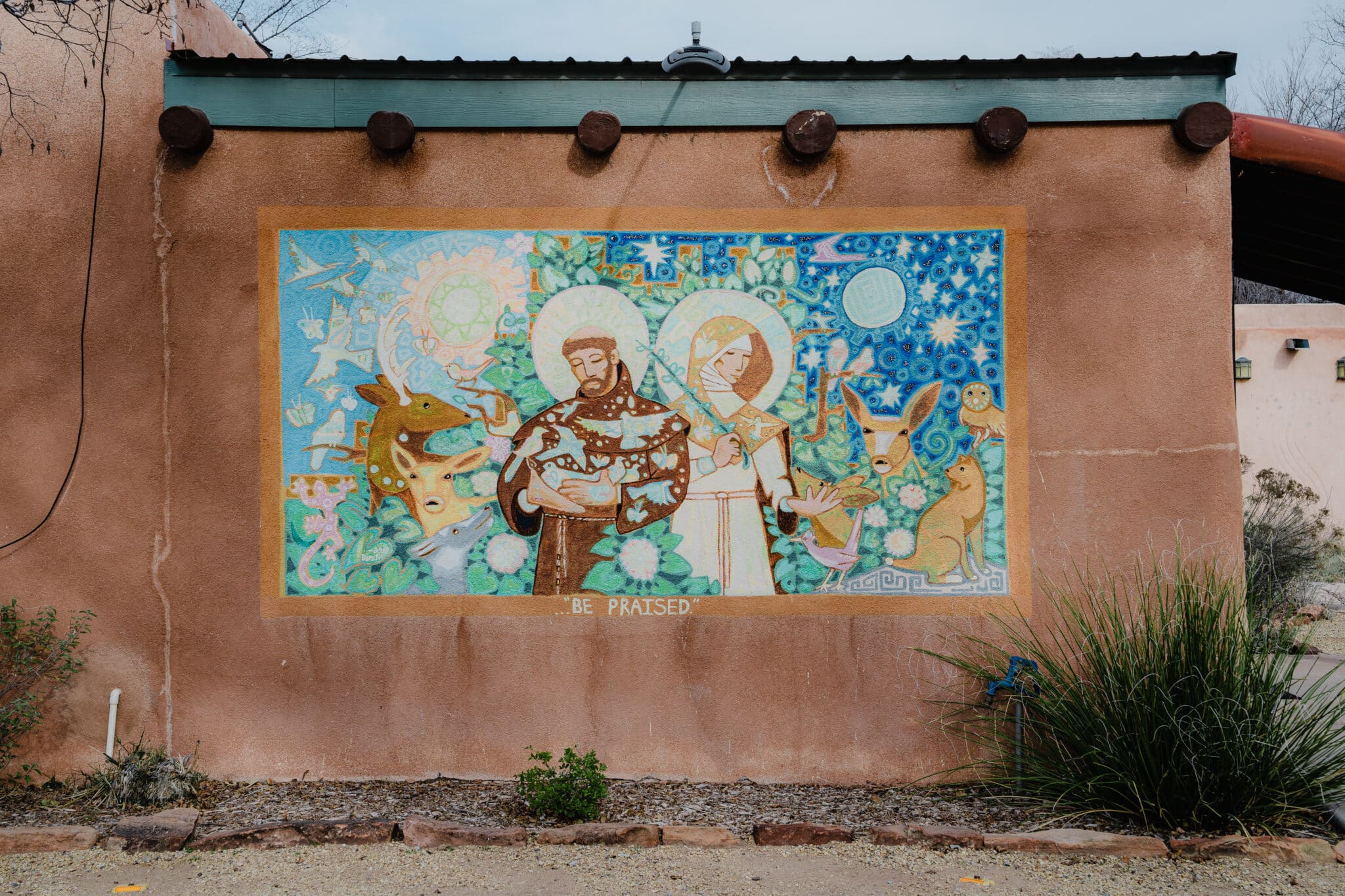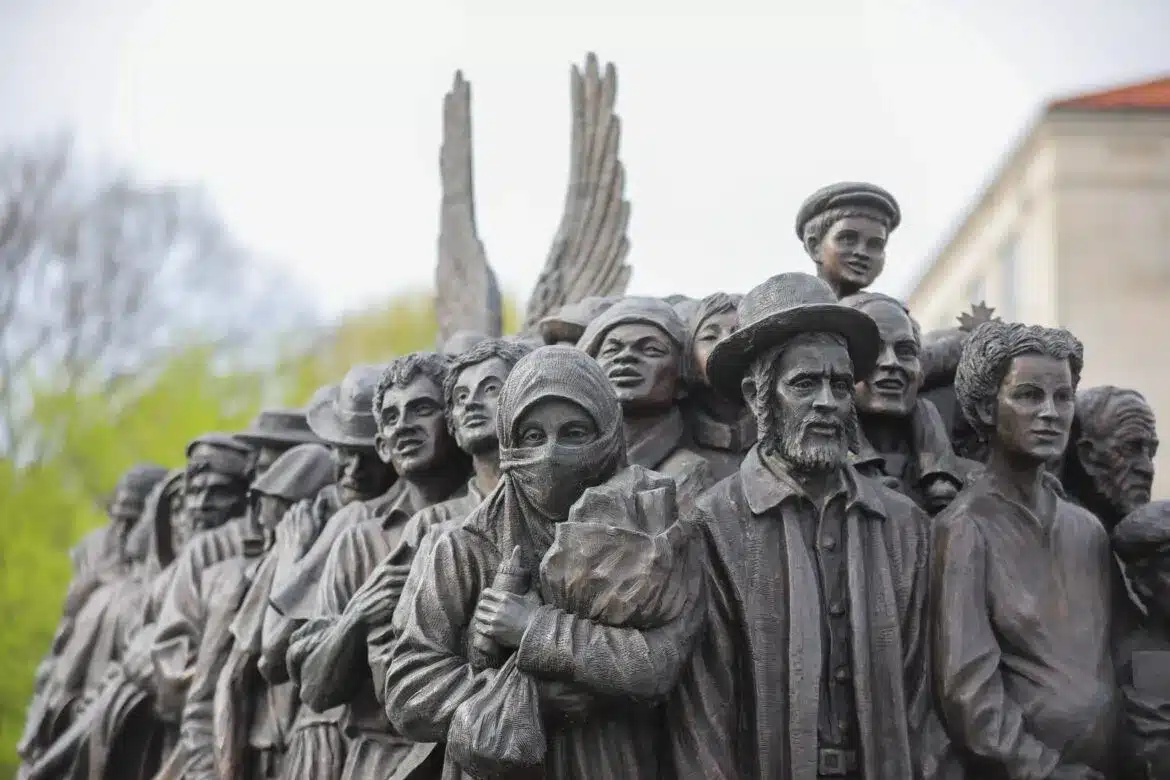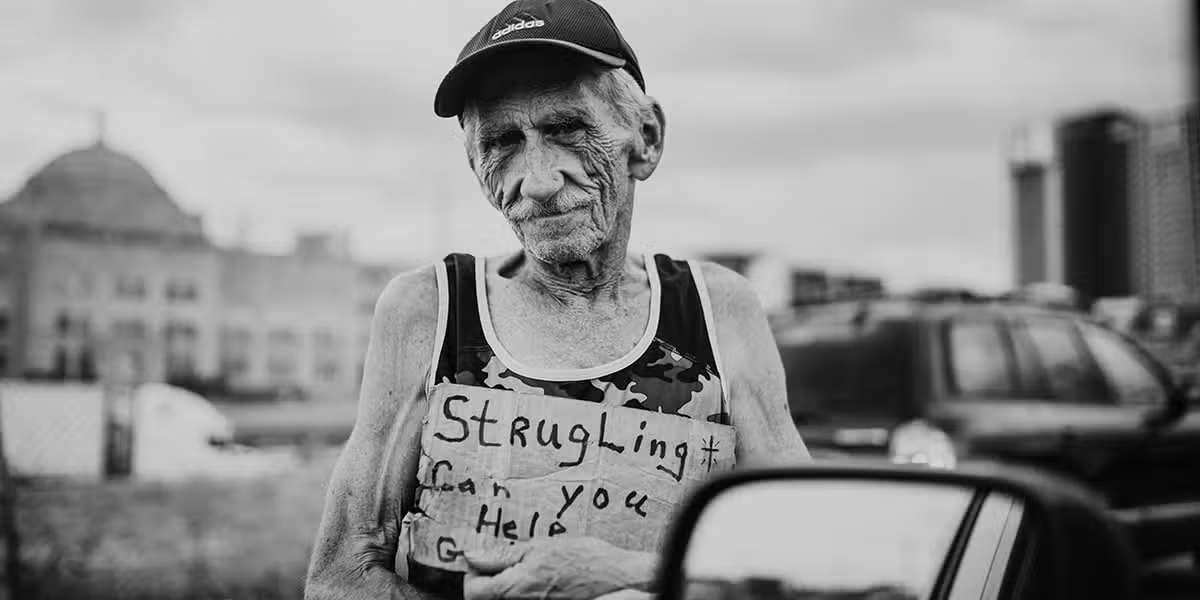West Side Story
Fifty years after Jerome Robbins and Robert Wise’s cinematic interpretation of William Shakespeare’s Romeo and Juliet, Steven Spielberg presents a gritty, luminous new rendering that transports us, once again, to the Lincoln Square neighborhood on Manhattan’s West Side of the late 1950s.
The Jets are a White gang, led by Riff (Mike Faist). The Puerto Rican gang, the Sharks, is led by Bernardo (David Alvarez), a boxer. As their neighborhood is being demolished around them to make room for the Lincoln Center for the Performing Arts and new high-rise apartment buildings, the gangs “rumble” for territory and dominance. The cops, led by Officer Krupke and Detective Schrank, are a constant presence in their lives.
The inexperienced María (Rachel Zegler) attends a dance at the local gym with Chino (Josh Andr és Rivera), her brother, Bernardo, and his girlfriend, Anita (Ariana DeBose). The Jets and Sharks dance off in a choreographed battle. But things heat up when Tony (Ansel Elgort), a former Shark who is now on probation after a year in prison, shows up at Riff’s insistence and sees María. They are immediately attracted to one another and agree to get together the next afternoon.
Meanwhile, the two gangs agree to meet for a rumble. Riff and some of his gang members buy a gun. Tony, who was given a home and a job at the drugstore by Valentina (Rita Moreno), warns him to stay away from the Jets. When Tony tells María about the rumble, she begs him not to go, but Tony thinks he can stop it from happening. But the best of intentions and young love cannot prevent violence and the inevitable deaths to follow.
West Side Story runs a little too long at 156 minutes, but what struck me is how relevant the story still is. It’s a tale of star-crossed lovers in a changing world where there is a great deal of instability, social upheaval, distrust in the authorities, and violence fueled by racism. With few opportunities and little access to education, hope is the most precious commodity on the West Side.
In this version, it is Valentina who sings the song “Somewhere,” voicing hope in tired, heartbreaking tones. She sings for all who come to America for a better life, while asking those already here to make room for immigrants and those on the margins. Her understated performance in a role created just for her (she won an Academy Award for playing Anita in the 1961 version) deserves a nomination. Zegler’s María is stunning, while Faist’s Riff is the most compelling character.
A-3, PG-13 Strong violence, some language, suggestive material.
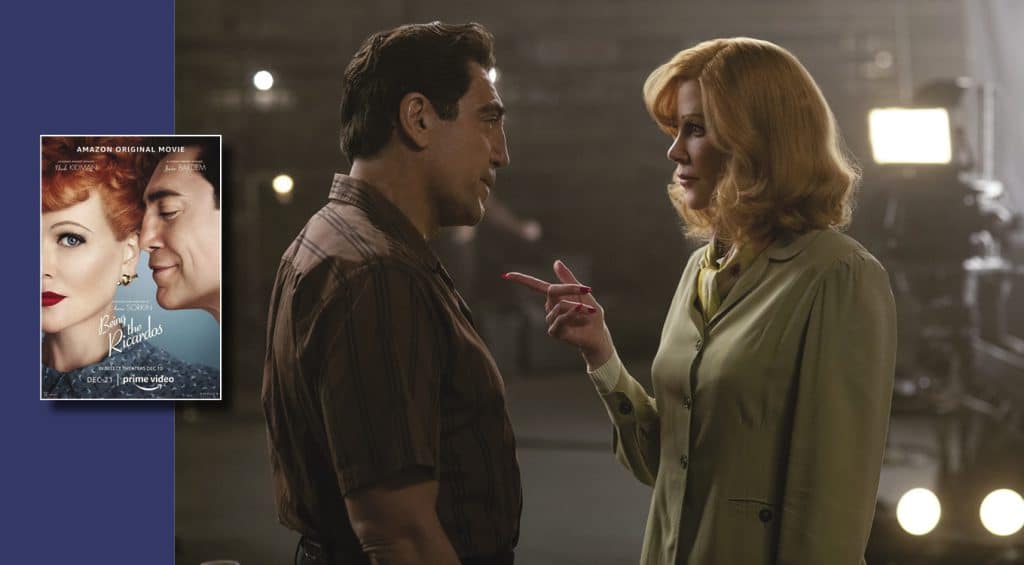
Being the Ricardos
Lucille Ball (Nicole Kidman) and her husband, Desi Arnaz (Javier Bardem), are hard at work producing and acting in their television series I Love Lucy. During one week in their busy lives, the film takes us behind the scenes to see how an episode is produced at the creative nexus of personalities, talent, life-changing events, and deadlines.
The week starts off with a bang: Gossip colum-nist Walter Winchell announces on his broadcast that Ball is a member of the Communist Party. Everyone involved fears this information could lead to the downfall of America’s favorite television show. Ball explains she just checked a box in honor of her grandfather, while her husband tells everyone it was a mistake.
At a table read, when the actors, including William Frawley (J.K. Simmons) and Vivian Vance (Nina Arianda), voice the script’s dialogue for the first time, Ball insists that a joke be changed. The tension thickens because she and the writers do not agree.
Frawley and Vance do not get along and never have, which leads to ongoing issues among the cast. Ball and Arnaz seem to get along at Desilu Productions, but behind the scenes she accuses him of infidelity. The biggest challenge, though, is when Ball announces that she is pregnant. She and Arnaz want to include it in the story line, but the sponsor and the network resist. Eventually they concede. When she has her baby off-screen during a 1953 episode, more people watched it than Dwight D. Eisenhower’s inauguration.
I grew up with I Love Lucy, which made it a challenge to watch anyone else playing Lucy, Ricky, Fred, and Ethel. There are scenes from the series recreated in the film, and this helped with my unease of seeing terrific, contemporary actors take their place. I enjoyed the film even as it saddened me to know Lucy and Desi’s marriage would later fail. Their personalities and the choices they made had a lot to do with that.
A-3, R‚ Language, mature themes.
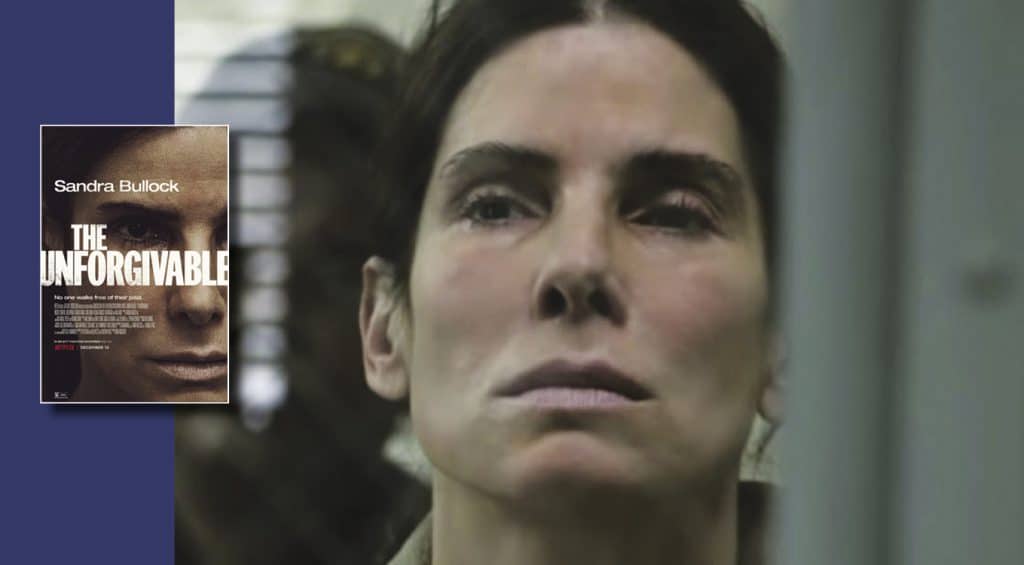
The Unforgivable
Oscar-winner Sandra Bullock stars in this powerful Netflix drama about a wounded family that is one of the best I have seen recently. Bullock, known mostly for her light, comedic roles, is Ruth Slater, a felon who is released from a 20-year sentence for killing Mac (W. Earl Brown), the sheriff and family friend who had to evict her and her little sister, Katie (Aisling Franciosi), from their home. Both of their parents are dead.
Ruth works two jobs to make ends meet, and, through flashbacks of the shooting, we learn new facts. Some people are kind to her until they find out she killed a cop. Katie has been raised by a foster family (Richard Thomas and Linda Emond), who have never given any of Ruth’s letters to her. The people living in her old home (Vincent D’Onofrio and Viola Davis) help her, while one of the sheriff’s sons seeks vengeance.
This is a story about the depths and reality of love—the lengths to which people will go and the sacrifices they will make for the ones they love.
Not yet rated‚ Violence, language, adultery.




